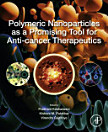Nanotechnology Applications for the Diagnosis and Therapeutic Treatment of Fungal Diseases
About this ebook
About the author
Dr. Virendra Gajbhiye has been working in the field of nanomedicine for the last 15 years. He has a doctoral degree (Ph.D.) in Pharmaceutical Science with post-doctoral research experience at University of Wisconsin-Madison and Oregon Health and Sciences University. Since 2013 he is working as a Scientist in Nanomedicine at Agharkar Research Institute, Pune, India. He has worked extensively with polymeric nanoparticles specially dendrimers and mesoporous silica nanoparticles. His research interest lies in Nanomedicine, Targeted drug and siRNA delivery, Biomedical application of dendrimers, Biomaterials unimolecular micelles and imaging, Multifunctional polymeric nanoparticles, Nanoparticles in tissue engineering.
Vandana Ghormade’s priority research area includes the development of biosensors for pathogens and contamination detection, where nanotechnology can play a vital role. Her keen interest in paper-based detection platforms has led to the development of rapid on-site detection of human invasive aspergillosis and ochratoxin. Nanoparticles as sensitive signaling labels, in combination with antibodies, can be used to develop Lateral Flow assay or ELISA formats. The development of nanotechnology-based rapid diagnostics will help alleviate the increasing disease incidences in India by allowing timely treatment to patients.
Jay Babu Ramapuram, PhD, is currently a Professor and Graduate Program Officer at the Department of Drug Discovery and Development, Harrison School of Pharmacy, Auburn University. He received his Bachelor of Pharmacy from the University of Madras and Master of Pharmacy and PhD degrees in Pharmaceutics from the Indian Institute of Technology, Varanasi, India. He has over 24 years of academic and industry experience in formulation and drug delivery research. His research interests include nanotechnology based topical formulations for skin diseases, lipid-based nanomedicines for cancer treatment, formulation of 3d printed implants, nanotechnology approaches for solubility and bioavailability improvement. He has published over 90 peer-reviewed manuscripts, 13 book chapters, and has presented over 100 papers in various national and international conferences.






